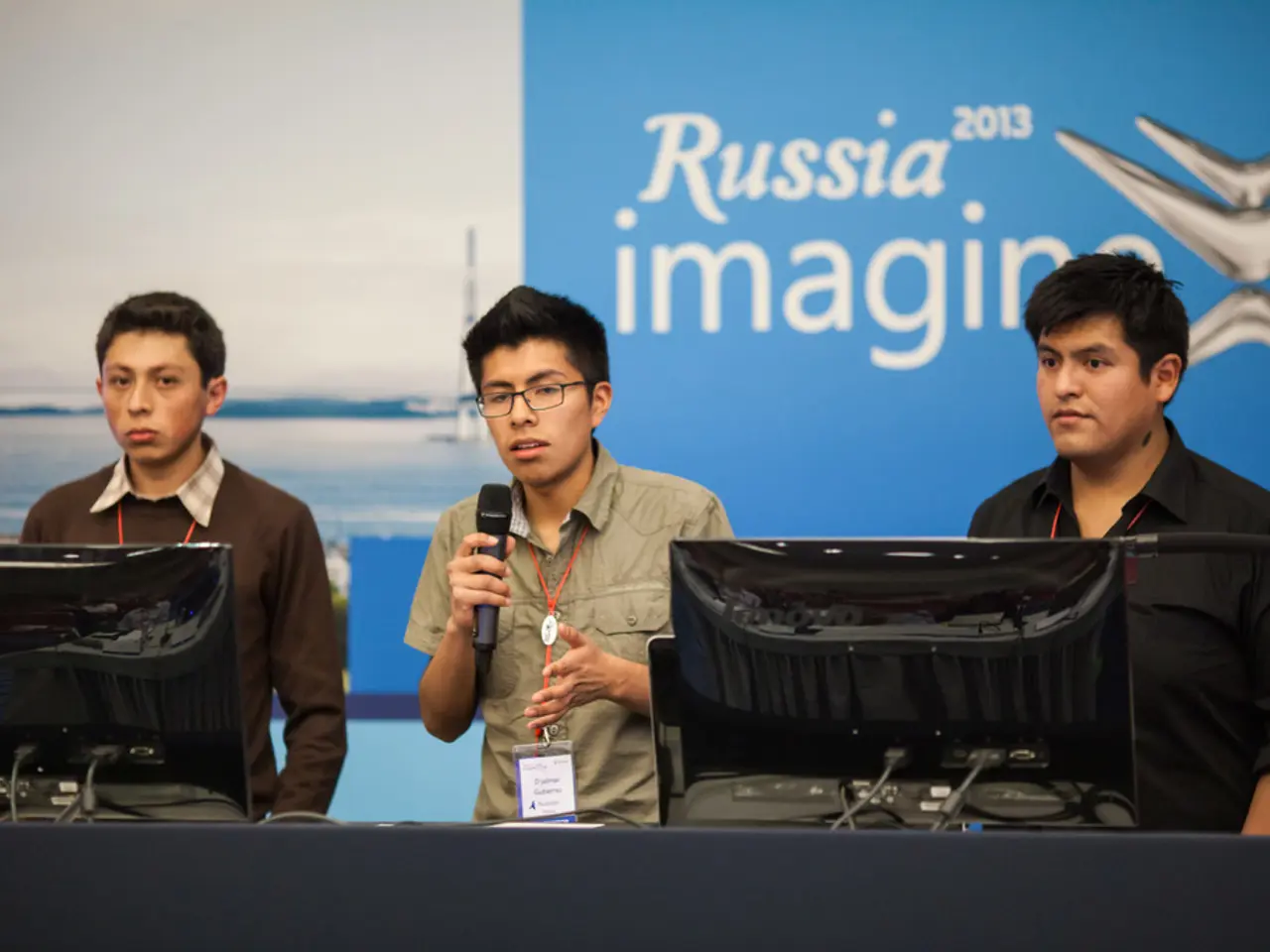U.S. government secures significant revenue-sharing agreement with Nvidia and AMD concerning sales of chips to China
The technology industry has been abuzz with news of a significant revenue-sharing agreement between NVIDIA, AMD, and the U.S. government. This deal, which allows NVIDIA to sell its H20 AI accelerator chip and AMD its MI308 chip to Chinese buyers under controlled conditions, could mark a turning point in the export of advanced AI chips to China [1][2].
Under the terms of the agreement, the chipmakers will pay 15% of their revenue from AI chip sales to China back to the U.S. Commerce Department. This deal enables controlled exports of advanced AI chips to China after prior outright bans, allowing U.S. firms to compete in the Chinese market while adhering to export controls [2].
The agreement is expected to generate direct U.S. government revenue, with estimates suggesting it could bring in $2–3 billion annually [1]. This new mechanism for U.S. capture of economic value from these sales could increase with higher sales volume.
The chips being sold are reportedly designed or designated for compliance with export restrictions, balancing sale authorization with national security constraints [2]. The U.S. government gains an economic lever and monitoring mechanism, potentially discouraging sales that could excessively empower China while still benefiting U.S. economic interests [1][2].
This approach represents a compromise, allowing some sales but under strict government oversight and economic reciprocity. It sets a precedent for export control policy that balances strategic technology restriction with practical market engagement rather than full embargo, possibly serving as a model for other sensitive industries [2].
However, critics debate whether this approach sufficiently mitigates national security risks or if it risks enabling Chinese technological advancement while the U.S. gains more direct financial benefit [2]. The Commerce Department will begin to issue H20 export licenses, and NVIDIA has confirmed its commitment to compliance with the rules set by the U.S. government.
The agreement covers revenue from Nvidia's H20 chip, designed for artificial intelligence applications. Exports of the Nvidia H20 chip had previously been halted by the Trump administration due to national security concerns. The arrangement was discussed following a meeting between NVIDIA CEO Jensen Huang and President Trump.
China is a key market for both NVIDIA and AMD. NVIDIA earned approximately $17 billion in revenue from China in its last fiscal year (13% of total sales), while AMD reported $6.2 billion in Chinese revenue in 2024 (24% of its total) [3].
The details of a theft incident involving an illegal immigrant Chinese national stealing sensitive AI microchips are not specified in the article. The U.S. President at the time of the article is Donald Trump, and NVIDIA CEO Jensen Huang commended President Donald Trump's A.I. agenda.
Experts suggest that this financial concession as a condition for export approval is highly unusual and may blur the lines between national security policy and economic strategy. The article does not provide information on any potential consequences for the Chinese national involved in the theft incident or any response from the Chinese government regarding the theft incident or the revenue-sharing agreement.
[1] Financial Times. (2020, December 15). Nvidia and AMD agree to share revenue with US for Chinese sales of AI chips. Retrieved from https://www.ft.com/content/2e68526a-8f2a-4728-b70a-8140405a189c
[2] Reuters. (2020, December 15). Nvidia, AMD agree to share revenue with U.S. government for AI chip sales to China. Retrieved from https://www.reuters.com/article/us-nvidia-amd-china-idUSKBN28P21R
[3] Statista. (2021). Nvidia's revenue in China from 2016 to 2020. Retrieved from https://www.statista.com/statistics/1061741/nvidia-revenue-china/ [4] Statista. (2022). AMD's revenue in China from 2016 to 2020. Retrieved from https://www.statista.com/statistics/1061743/amd-revenue-china/
- The technology industry is witnessing a significant event as NVIDIA, AMD, and the U.S. government have agreed on a revenue-sharing deal for AI chip sales to China.
- Under this agreement, NVIDIA and AMD will contribute 15% of their revenue from AI chip sales to China to the U.S. Commerce Department.
- This deal could potentially generate direct U.S. government revenue of $2–3 billion annually and may increase further with higher sales volume.
- The deal allows these companies to compete in the Chinese market while adhering to export controls, and sets a precedent for export control policy in sensitive industries.
- The agreement follows a meeting between NVIDIA CEO Jensen Huang and President Trump, and includes specific terms for the export of Nvidia's H20 chip, designed for artificial intelligence applications.




